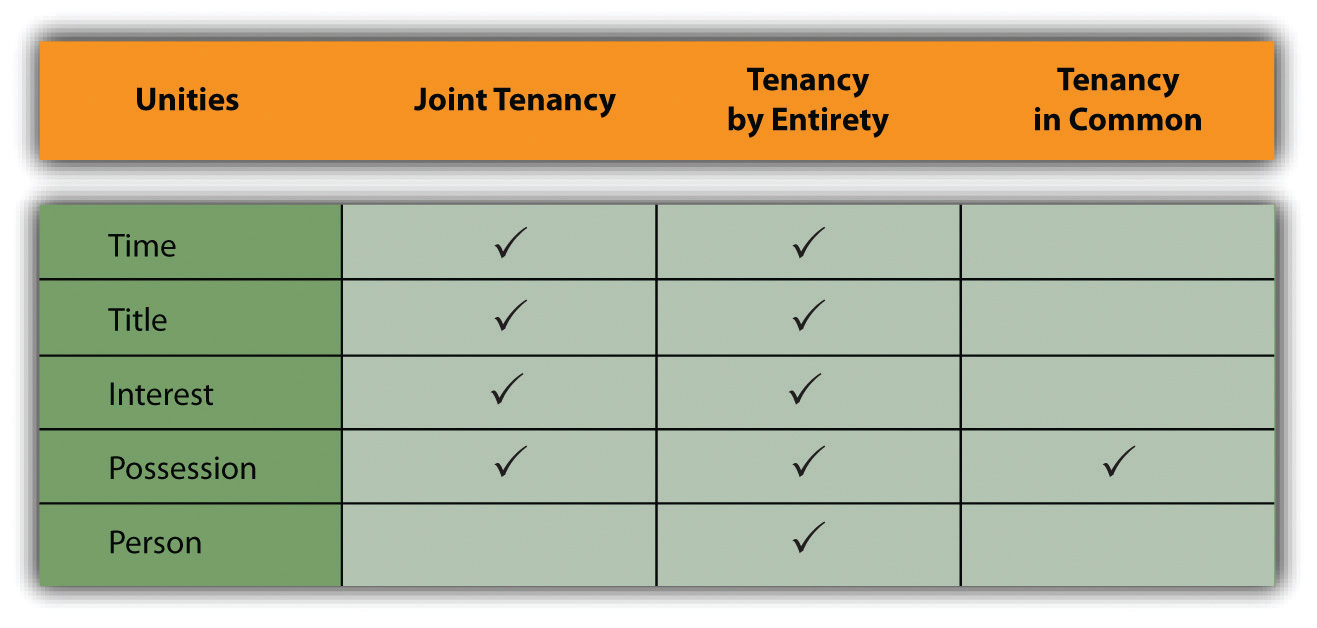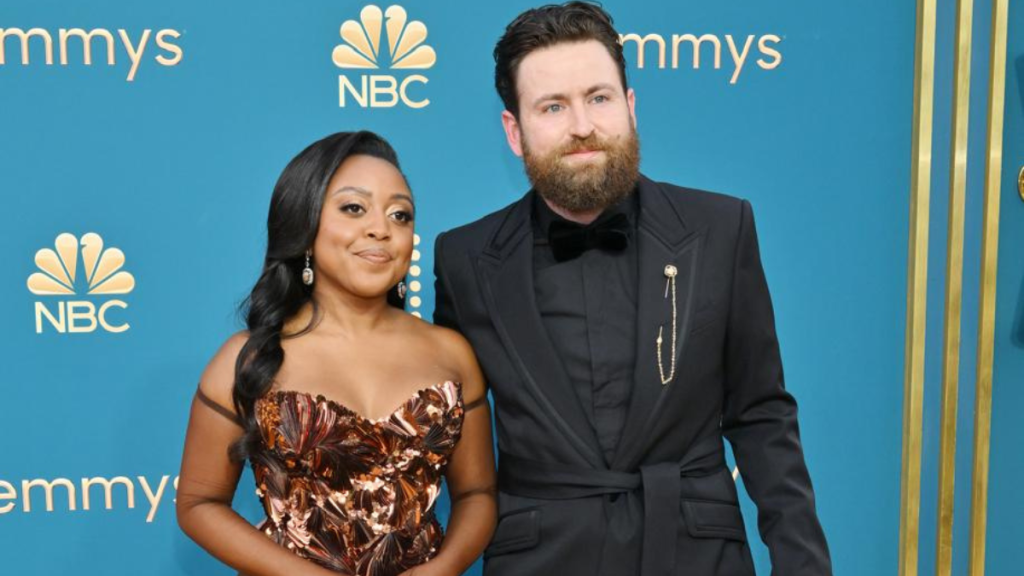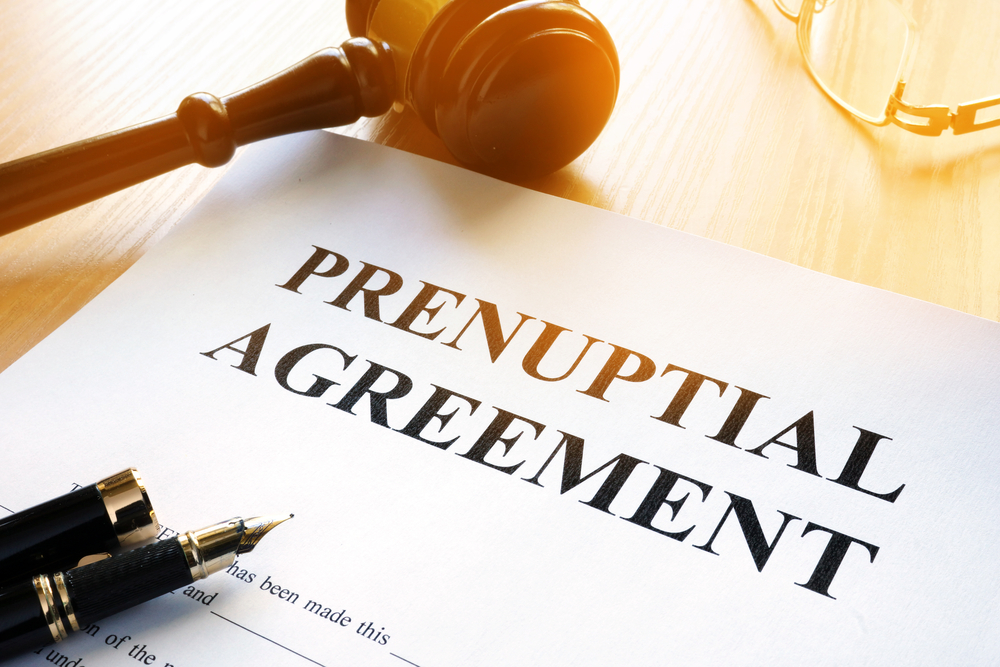💍 Quinta Brunson Reveals She Has a Postnup With Her Estranged Husband—Here’s What That Really Means
Quinta Brunson, the Emmy-winning star and creator of Abbott Elementary, recently made headlines—not for her career success this time, but for a personal revelation: she and her estranged husband, Kevin Jay Anik, have a post-nuptial agreement in place.
As news of their separation broke, fans were surprised to learn that the couple, who married in 2021, had taken the extra step of signing a postnup. While prenuptial agreements are relatively common among celebrities and high-net-worth individuals, postnuptial agreements are a bit less talked about—but no less important.
So what exactly is a postnup? Why do couples decide to sign one after they’re already married? And what does it mean for Quinta Brunson’s divorce process?
Let’s break it down in simple terms and explore everything you need to know about post-nuptial agreements—from what they are to how they work, and whether one might make sense for you.

📘 What Is a Post-Nuptial Agreement?
A post-nuptial agreement, or “postnup” for short, is a legal contract signed by spouses after they are married. Like a prenup, it outlines how assets, debts, and sometimes even responsibilities will be handled in the event of a divorce or separation.
Whereas prenuptial agreements are signed before tying the knot, postnups come into play after the wedding bells have rung. They are legally binding (in most U.S. states) and can be as detailed or broad as the couple chooses.
In other words:
A postnup gives married couples a chance to clarify finances and expectations—before things get messy.
💡 Why Might a Couple Create a Postnup?
Couples may opt for a postnup for many reasons—not all of which point to trouble. In fact, sometimes these agreements are a healthy way to open up financial dialogue or protect both parties in unexpected situations.
Here are some common reasons:
✅ 1. Change in Financial Circumstances
Maybe one spouse receives an inheritance, a business takes off (hello, Quinta!), or one partner assumes significant debt. A postnup helps outline how those assets or liabilities will be treated.
✅ 2. One Spouse Pauses Their Career
If one spouse steps away from work to care for children or support the other’s career, a postnup can ensure they’re financially protected down the line.
✅ 3. To Define Property Ownership

Especially in states with community property laws, a postnup can help specify what belongs to whom—including real estate, intellectual property, or businesses.
✅ 4. To Revisit or Replace a Prenup
Maybe the couple had a prenup that no longer fits their circumstances. A postnup can update or override the earlier terms.
✅ 5. As a Way to Rebuild Trust
Some couples use postnups during marital rough patches. For example, after infidelity or financial betrayal, a postnup may help rebuild trust and provide security moving forward.
📝 What Might Be Included in a Postnuptial Agreement?
Each postnup is unique to the couple signing it, but here are a few things commonly included:
- Division of assets and debts in the event of divorce
- Spousal support/alimony agreements
- Ownership of real estate or businesses
- Protections for children from previous relationships
- Clauses related to infidelity or specific behavior
Note: While some postnups include “lifestyle clauses” (like penalties for cheating), these aren’t always enforceable in court. It depends on your state and the wording of the agreement.
🔍 How Does Quinta Brunson’s Postnup Fit In?

While Quinta Brunson has kept many of the personal details private, the public confirmation of a post-nuptial agreement suggests she and her husband, Kevin Jay Anik, took proactive legal steps during their marriage to define how finances and property would be handled in the event of a split.
Given Quinta’s rising fame and success—from her Emmy wins to her expanding roles in Hollywood—it’s likely the postnup was designed to protect her growing assets while still being fair to both parties.
This kind of agreement can streamline divorce proceedings, reduce legal battles, and help both individuals walk away with dignity and clarity—especially when significant earnings or intellectual property are involved.
⚖️ Are Postnups Enforceable in Court?
In most U.S. states, yes—but with conditions. Courts are more cautious with postnups than prenups because they’re signed after vows are exchanged, often when one party may have less leverage.
To be enforceable, a postnup generally must:
- Be in writing
- Be voluntarily signed by both parties (no coercion)
- Include full financial disclosure
- Be fair and reasonable at the time of signing
- Be signed with independent legal counsel for both parties (strongly recommended)
Judges can throw out a postnup if it seems one-sided, unclear, or was signed under duress.
💬 Common Misconceptions About Postnups

❌ “Postnups are only for couples in trouble.”
Not true. Many stable, loving couples sign postnups to protect future peace of mind and manage evolving financial lives.
❌ “It means you don’t trust your spouse.”
Actually, it can mean the opposite. By putting everything on the table, a postnup shows transparency and planning.
❌ “Postnups are only for rich people.”
While celebrities and entrepreneurs often use postnups, anyone with assets, debts, or business interests can benefit.
🙋♀️ FAQs: Post-Nuptial Agreements Explained
Q: Can you create a postnup without a lawyer?
A: Technically yes, but it’s not advisable. To ensure it’s legally binding and holds up in court, each party should have independent legal counsel.
Q: Is a postnup the same as a prenup?
A: They serve similar purposes, but the timing differs. Prenups are signed before marriage; postnups are signed after.
Q: What happens if one person doesn’t agree to the postnup?
A: Then it doesn’t happen. Like any contract, both parties must agree willingly.
Q: Can a postnup cover child custody or support?
A: Usually not. Courts prioritize the best interests of the child, so those decisions are made at the time of divorce or separation—not pre-decided in a postnup.
Q: Can a postnup be updated later?
A: Yes! Just like any contract, a postnup can be modified or replaced if both parties agree and sign a new version.
💭 Final Thoughts: Why This Matters
Quinta Brunson’s revelation about having a postnup may feel like celebrity gossip at first glance—but it highlights a much larger, more relatable truth: marriage is not just emotional—it’s also a legal and financial partnership.
Post-nuptial agreements offer couples a way to protect what matters most—assets, businesses, children, and emotional wellbeing—while still honoring the relationship. Whether you’re navigating financial growth, personal challenges, or simply want to create a safety net for the future, a postnup can be a smart and proactive step.
In Quinta’s case, it’s a reminder that even in the most glamorous or public marriages, practical planning can provide peace of mind—and a smoother path forward when things change.
